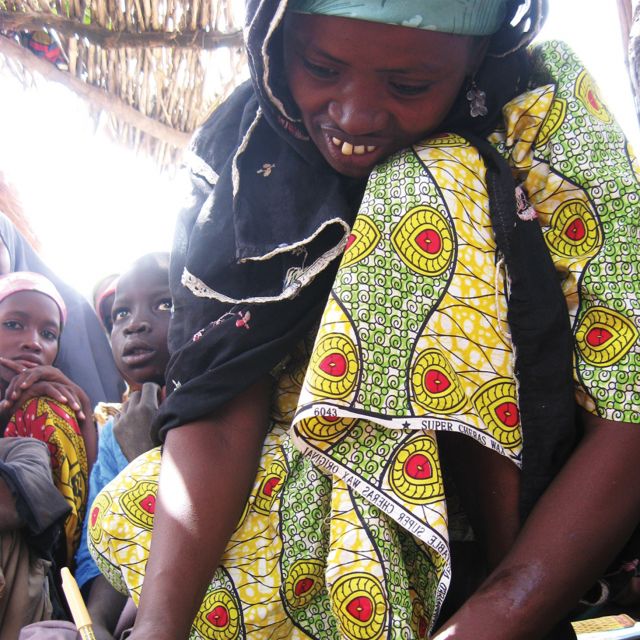Given that this is neither a matter of doctrine nor morals, there is not an issue of magisterial authority at stake. It’s a prudential judgment about whether a particular organization is an effective means of carrying out the corporal works of mercy, advancing the cause of liberty and justice, and contributing to the common good. As a commentator, I have given my judgment in light of recent controversies. The pastors of the Church have a different collective judgment. I wish I shared that view, but honesty — and the written record — requires me to say that I do not. However, in terms of advising Catholics how to proceed in light of the March 22 statement, it should go without saying that a newspaper commentator is by no means of equivalent weight to the bishops’ recommendation.
Individual Catholics, as responsible stewards of their God-given resources, have the duty to decide, on the basis of all available information and their own best judgment, how to allocate their charitable donations. It is a laudable desire for them to be in harmony with their bishops in making that decision.
The urgent appeal of the bishops followed the announcement by the Canadian International Development Agency (CIDA) of its funding for CCODP over the next five years. From 2006-2011, CIDA gave CCODP $44.6 million for its projects.
For the next five-year period, CCODP asked for $49.2 million. CIDA responded in February 2012 with a much lower amount: $14.5 million. The CIDA contribution is critical for CCODP’s budget. Last year, excluding emergency relief for overseas disasters, CCODP received $8.2 million from CIDA, and $12.6 from Share Lent and other contributions.
Why the significant cut — from $44.6 million to $14.5 million? The federal government announced a new policy for overseas development aid some years ago. The new policy had two key shifts. First, Canadian money would be focussed on a smaller number of countries, with the goal of making a greater impact in fewer countries rather than a marginal impact in many countries. The second shift was to move money away from advocacy in favour of concrete aid projects — less money for social and political activism and more money for digging wells, building clinics, funding schools and the like.
Both those shifts hit CCODP hard. Its long-standing approach has been to seek out partners in dozens and dozens of countries, and those partners are very much directed to social and political activism.
Indeed, the controversies that have plagued CCODP in Catholic circles have arisen from its partnerships with some such agencies which advocate for causes antithetical to Catholic teaching, including wider availability of abortion.
That’s not the CIDA issue though. CIDA is content to fund abortion directly, as it does in its grants to International Planned Parenthood. Its cuts to the CCODP grant were because CCODP offers in large part a program no longer in keeping with CIDA priorities.
“The CCCB is extremely disappointed with this decision which will greatly curtail CCODP’s good work,” the bishops’ statement said. “With our full support, for forty-five years, it has faithfully and successfully made important contributions to all the areas where it has been present. The CCCB President, Archbishop Richard Smith, and Vice-President, Archbishop Paul-André Durocher, saw this first-hand during their recent visit to Haiti. Tragically, with a smaller annual budget, CCODP will have to decrease (and possibly even eliminate) the amount of funding for a number of projects supported in the South and reduce their programs in the North.”
The massive cuts in CCODP’s government aid have brought about an unexpected moment of crisis. It remains to be seen whether that crisis may produce the thoroughgoing reform of CCODP that, for example, Cardinal Collins of Toronto called for two years ago.
Is D&P worth donating to? You decide
By Fr. Raymond J. de SouzaThe question arises because last June I wrote in this column that CCODP “has a tenuous claim on Catholic dollars because, aside from fundraising in Catholic parishes, they have a tenuous relationship with any distinctively Catholic mission. In their operations they are largely — and by their own proud design — indistinguishable from any number of peace and justice NGOs working in the developing world.”
The bishops of Canada take a different view and, in a March 22 statement, urged Catholics to redouble their generosity during the annual Share Lent campaign. In Kingston, our own archbishop sent a message to all parishes to that effect. I included it in my parish bulletin in the space usually reserved for my own message.
Please support The Catholic Register
Unlike many media companies, The Catholic Register has never charged readers for access to the news and information on our website. We want to keep our award-winning journalism as widely available as possible. But we need your help.
For more than 125 years, The Register has been a trusted source of faith-based journalism. By making even a small donation you help ensure our future as an important voice in the Catholic Church. If you support the mission of Catholic journalism, please donate today. Thank you.
DONATE

